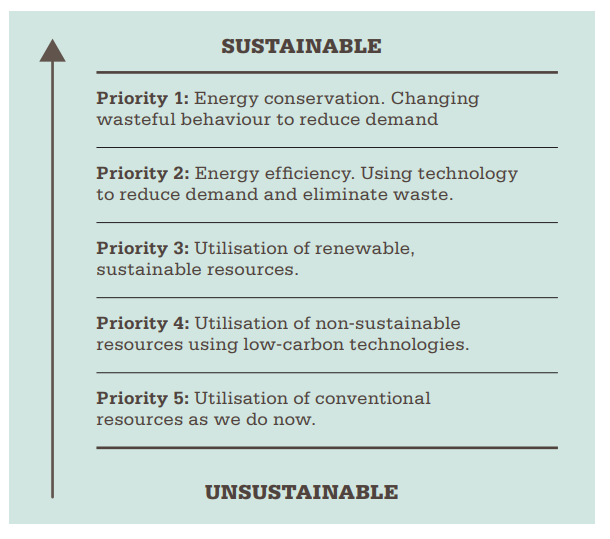Institution news
Background and focus
Community energy in the UK makes a growing contribution to energy requirements but is not yet fulfilling its potential. Its development has been constrained through a combination of lack of Government policy support, wider economics and finance, regulation, physical system constraints and inadequate provision of skills. The IMechE has been active in addressing community energy, most recently through the facilitation of a workshop, culminating in the publishing of a report this month entitled, “Exploring the Evolution of Low-Carbon Local Energy”.
The report was not limited to community energy, having a wider scope including local energy systems without direct community involvement, but the common theme was energy systems within or near where concentrations of people live. Outputs included recommendations on Government policy and research initiatives. Through using a workshop to inform the report, IMechE performed the role of channelling the views of a range of contributors, not only engineers, but also developers, network operators, civil servants and energy policy professionals. The outputs reflected this range of contributors and were not limited to engineering matters.
Project establishment
The most challenging stage of a community energy project is its transition from inception to the project delivery phase, at which point is can be funded. The main reasons for this are:
- The level of relevant skills for establishing community energy projects varies considerably across community groups, making it difficult in many cases to turn initial ideas into a form that will attract financial support to take the project through the delivery phase to completion.
- There is a lack of availability of funding at the early stages of community energy projects, and there is a high degree of reliance on volunteers when a considerable level of work can be required, which constrains project development.
The IMechE can help address these challenges of community energy project establishment across the UK in the following ways:
- Producing, or giving direction towards, resources on technical and economic principles that can be applied to energy systems at a community level. For example, the IMechE and its members could provide information on matching solar photovoltaic electricity generation with electricity demand for optimum revenue, or on the suitability of different building types and uses for the supply of heat using heat pumps.
- Drawing out the determining factors of the success of delivered community energy projects that can be used to shape projects elsewhere. For example the success of a district heating system on a project could be due to the particular mix of building use and the proximity of buildings to each other.
Through this support to the development of project ideas, even amongst those in community groups without experience in energy engineering, community groups will face less expenditure on professionals at the initial stage, and when they do need expert advice, they will have a clearer idea of which service providers to go to in order to arrive at the most suitable project for their community.
Systems approach
Implementation of community renewable energy systems in general in the UK has not given due consideration to impact on the wider energy network, or to how different system components will fit together to form a future sustainable energy system. Government support measures, such as the Feed-In Tariff, have not been designed and implemented in a way that leads towards optimisation at the national energy system level. In the case of the introduction of renewable electricity generation, there are grid stability issues that need to be addressed, as well as the need for back-up power capacity and associated infrastructure, factors which are not typically included within renewable energy business models.
The IMechE can support the appropriate and sustainable growth of community energy through contributing to systems level analysis nationwide on an inter-seasonal basis, with members active at all scales and in all areas of the energy industry. By doing so, we can influence policy towards the development of a functional integrated system. This is important, not least because there has been a tendency for community energy projects to focus on electricity generation, whereas in the UK there is significantly more heat consumption than electricity consumption. Furthermore, before any energy supply is considered, the priority should be, in line with the Energy Hierarchy (below), to avoid the need to use energy.

The IMechE can work with Government and other relevant bodies in determining how the level of support for local energy projects may be linked to wider system requirements and characteristics, across sectors, including electricity generation, heat generation, transport, waste and energy efficiency.
Education and engagement
One of the main benefits of community energy projects is that, through closer engagement with energy systems, participants develop a greater understanding of the balance between energy supply and demand, and associated constraints, which generally results in greater care being taken over energy use. The IMechE can encourage this process through raising awareness of community energy amongst its membership, with the expectation that members can stimulate, and participate in, community energy projects in their own communities.
Local community energy groups may be found on the membership register published on the Community Energy England website. IMechE members can also help by using their business connections to facilitate partnerships between companies and community energy groups to enhance project delivery and outcomes. For specific specialist work to be done on a paid basis, IMechE also has a membership register of consultants. For more information on this and other routes to engagement with the IMechE, please contact Head of Engineering, Dr Jenifer Baxter, Jenifer.Baxter@imeche.org.